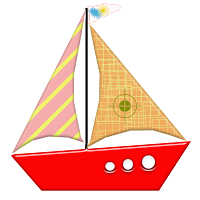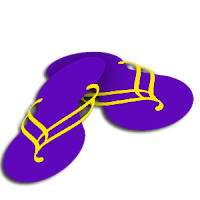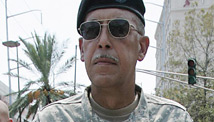Poetry

Sixty Poems for Haiti
Sixty Poems for Haiti - The anthology Sixty poems for Haiti is published on 21st June 2010 from Cane Arrow Press. It was conceived by Maggie Harris, the award-winning, Guyanese-British poet, now based in Wales.The collection comprises poems from authors ranging in age from 12 to 89 and located in the West Indies, UK, Ireland and Europe. Some contributors are seasoned - even famous - poets; some beginners; the only brief given was to send a poem for Haiti. Some have responded directly, or elliptically, to the traumatic events on and after the earthquake of January 2010; others have sent a selection from their recent work as gifts to the people of Haiti. All of them have given their work for free, the aim being to raise a few dollars more for the reconstructive work on the island, and to provide a good stimulating read. Amongst the contributors are West Indian pioneer Kamau Brathwaite, Debjani Chatterjee, Trinidadian scholar Vahni Capildeo and the St Lucian man of letters, Kendel Hyppolyte.
The collection is also the book of the concert - an event to be held in Broadstairs on 26th June and to be hosted by many of the authors represented in the anthology. At least 90% of the ticket price and that on the cover of the first edition of the book will go directly to the Lambi Fund whose mission is 'to assist the popular democratic movement in Haiti.' The Fund "provides financial resources, training and technical assistance to peasant-led community organizations that promote the social and economic empowerment of the Haitian people." Maggie will publish the total raised on her website (www.maggieharris.co.uk). All profits from future editions will also be given to the fund. Copies of the book will be available directly from the publisher.
Cane Arrow Press, the publisher of the collection, was set up in 2009, inter alia to promote the poetry of Trinidad and Tobago. Emanating from one of the last British colonies in the Caribbean, the poetry of the twin island state has had to make up a century-and-a-half head start on the longer standing Anglophone West Indian territories such as Barbados and Jamaica. Although the novels of Selvon and Naipaul have received international recognition, the poetry of the nation has not been collected since Papa Bois - a 1947 collection from a group of writers known as the Five Folio Group - a failing Cane Arrow hopes to put right.
A twin aim of the press is to support the poetry and philosophy of West Indian Britain. In the same way that T&T poetry exists on the margins of WI poetry, so West Indian British poetry fulfils that limbo position in exile. Dedicated to the idea that the best creative writing comes out of the crossroads of cultures, the press has so far released three books and aims to publish about three books a year for the foreseeable future.
Next on the agenda is that long awaited T&T anthology and the press is also working on the reprint of Cy Grant's Ring of Steel which celebrated the nation's contribution to C20 music. Both in their own way seek to celebrate the work of forgotten ancestors and to provide a springboard for current thinking.

Anansesem publishes fiction, nonfiction, poetry and art by aspiring and established children's writers and illustrators, and children (ages 8 to 16.) We give priority to persons living in or originally from the Caribbean region, but we also welcome work from around the world- Africa, India, China, Canada, the United States, Latin America, the UK etc.
Please follow these guidelines for submitting material. There is no reading fee. See our FAQ page for payment and publication rights.
Deadline for inaugural September 2010 issue: August 15, 2010
•••
Stuff that amuses, inspires and delights. Richness of details, authentic handling of dialogues and relationships, and sensitive treatment of issues. Caribbean stories and poems that can be performed as readily as they can be read. Age-appropriate writing that authentically reflects the values and attitudes of Caribbean people. Writing that considers Caribbean children (and their parents and teachers) as the primary audience, yet is accessible to "cultural outsiders." Illustrations that daringly interpret the Caribbean picture book aesthetic, showing awareness of traditional Caribbean artistic expressions, but also innovative integration of styles of children's illustration drawn from other cultures. Caribbean children's literature that builds upon the past while speaking to the present and the future, that critiques and informs, and that avoids stereotypical presentations (stereotypical presentations would include the Caribbean fruit story, Caribbean festival story, Caribbean alphabet tale, and the mythical Caribbean folktale.) Send us some stories about real-life Caribbean children living in actual social and historical circumstances. Words and plots that evoke childhood in the Caribbean. Ultimately, we are looking for pictures and narratives that Caribbean children will love and see themselves in.
1. All submissions must include the name of the person submitting the work, the title(s) of the work, and a short bio (no more than 200 words.) In the bio, please list previous publications if any. In children's bios, please indicate the child's age. If applicable, please include information about the author's/artist's connection to the Caribbean.
2. Submissions are by email only. Different types of work are sent to different email addresses so make sure you get it right! See below.
3. Simultaneous submissions are accepted. Please let the Anansesem editor you sent your work to know immediately if your work is accepted elsewhere.
4. Multiple submissions are welcome.
5. Previously published poems and artwork may be considered, provided you let us know where and when they were published. Previously published prose (fiction and non-fiction) will not be considered.
6. Please do not re-submit previous material unless expressly asked to do so by the Managing Editor.
7. Any work received after the closing date for a particular issue will be considered for the next issue.
8. You can expect a response from us by the publication date. Please do not contact us regarding the status of your work; we will contact you.
9. Do not send us links to your website. We'll leave it to you to find and email us your best work.
10. Spelling and Translation Policy: Both American and British spelling are fine. Caribbean Creoles are fine provided that they are accompanied by translations. We currently only accept English language submissions.
 Category Guidelines
Category Guidelines Poetry, Fiction, Non-Fiction and Art by Children: In every issue, a special section of the site will be devoted to showcasing the work (poetry, fiction, non-fiction and art) of our region's youngest writers and artists. Anansesem welcomes submissions by children from 8 to16 years of age. Children must be from the Caribbean in order to submit their work. Please follow all of the General Guidelines above for submitting work by children. Send submissions of kids' poetry to anansesempoetry[at]gmail[dot]com. Send submissions of kids' art to anansesemart[at]gmail[dot]com. Send all other types of work by children to anansesemkids[at]gmail[dot]com. When sending work by children, please include the name of the child and the word "Kids" in the subject line of the email, e.g. Lily Brown_Kids. You must send a separate email for each child that you are submitting for. Please observe the following restrictions on kids' work:
Poetry, Fiction, Non-Fiction and Art by Children: In every issue, a special section of the site will be devoted to showcasing the work (poetry, fiction, non-fiction and art) of our region's youngest writers and artists. Anansesem welcomes submissions by children from 8 to16 years of age. Children must be from the Caribbean in order to submit their work. Please follow all of the General Guidelines above for submitting work by children. Send submissions of kids' poetry to anansesempoetry[at]gmail[dot]com. Send submissions of kids' art to anansesemart[at]gmail[dot]com. Send all other types of work by children to anansesemkids[at]gmail[dot]com. When sending work by children, please include the name of the child and the word "Kids" in the subject line of the email, e.g. Lily Brown_Kids. You must send a separate email for each child that you are submitting for. Please observe the following restrictions on kids' work:
Poetry: 1-6 original poems
Prose: a maximum of two pieces, no more than 700 words
 Poetry (For kids by adults): Send 3-6 original poems to anansesempoetry[at]gmail[dot]com. No attachments please. No long, epic poems please. Paste the poems and the bio into the body of your email. If your poem requires special formatting, let us know. If we like your work enough to consider it, we may ask you to send an attachment. Poetry has a rolling submission period; if your work is being held for consideration for a future issue, you will be notified. Poetry by Caribbean writers have first priority.
Poetry (For kids by adults): Send 3-6 original poems to anansesempoetry[at]gmail[dot]com. No attachments please. No long, epic poems please. Paste the poems and the bio into the body of your email. If your poem requires special formatting, let us know. If we like your work enough to consider it, we may ask you to send an attachment. Poetry has a rolling submission period; if your work is being held for consideration for a future issue, you will be notified. Poetry by Caribbean writers have first priority.
 Fiction (For kids by adults): Send a maximum of two pieces of no more than 5000 words to anansesemfiction[at]gmail[dot]com. We will accept .doc., .wps, or .txt attachments. Fiction by Caribbean writers have first priority.
Fiction (For kids by adults): Send a maximum of two pieces of no more than 5000 words to anansesemfiction[at]gmail[dot]com. We will accept .doc., .wps, or .txt attachments. Fiction by Caribbean writers have first priority.
A note on fiction
By 'fiction' we mean anything within the realm of imaginative prose including flash fiction, short stories (5000 words or less,) and collaborative fiction as long as all the authors are listed. Excerpts or chapters from unpublished books are fine as long as they can stand alone and still make sense. We will accept children's fiction in the genres of realistic fiction, fantasy, historical fiction, science fiction, super hero fiction, mystery, humor, and traditional (traditional = original work that fits the folk tale, fairy tale, or myth/legend sub-genres.) The only genres we will not accept are religious fiction, fan fiction and certain types of horror fiction.
 Nonfiction (For adults by adults): Send no more than two non-fiction pieces of no more than 1,000 words to anansesemnonfiction[at]gmail[dot]com. We will consider narrative/creative non-fiction (i.e. personal or reflective essays, literary journalism, and memoir or autobiographical pieces) and expository non-fiction (i.e. scholarly/research/analytical essays/book reviews.) Non-fiction pieces must bear some clear relation to Caribbean children's literature or Caribbean children's literacy experiences. We want to publish upbeat pieces that focus on Caribbean children's positive reading, writing and speaking experiences, but will consider any well-written piece evoking or exploring the experience of the Caribbean child or childhood in the Caribbean. In particular, essays should convey real emotional honesty and/or humor.
Nonfiction (For adults by adults): Send no more than two non-fiction pieces of no more than 1,000 words to anansesemnonfiction[at]gmail[dot]com. We will consider narrative/creative non-fiction (i.e. personal or reflective essays, literary journalism, and memoir or autobiographical pieces) and expository non-fiction (i.e. scholarly/research/analytical essays/book reviews.) Non-fiction pieces must bear some clear relation to Caribbean children's literature or Caribbean children's literacy experiences. We want to publish upbeat pieces that focus on Caribbean children's positive reading, writing and speaking experiences, but will consider any well-written piece evoking or exploring the experience of the Caribbean child or childhood in the Caribbean. In particular, essays should convey real emotional honesty and/or humor.
A note on nonfiction
Nonfiction submissions should be double-spaced throughout, preferably in Times New Roman font. Citations using American Psychological Association (APA,) Chicago Manual of Style (CMS,) and Modern Language Association (MLA) styles are all acceptable. Although Anansesem publishes non-fiction, please note that we are not a peer-reviewed journal. You can think of us as a 'professional magazine,' i.e. a non-scholarly magazine written for an educated audience. If your non-fiction submission contains a reference page that is more than half a page long, you would be better off sending it to a scholarly, peer-reviewed journal, like one of these.
 Artwork (Children's illustration by adults): Send no more than five images (artwork, cartoons, graphics etc.) to anansesemart[at]gmail[dot]com. Preliminary images do not need to be print resolution and may be attached as a JPEG or GIF. Final, approved artwork should be of professional quality, at least 300 dpi saved as a TIFF, GIF or JPEG. After we have considered all submitted artwork, a single piece of artwork will be chosen to appear on the front cover of the upcoming issue. All submissions of art by adults are eligible for this distinction.
Artwork (Children's illustration by adults): Send no more than five images (artwork, cartoons, graphics etc.) to anansesemart[at]gmail[dot]com. Preliminary images do not need to be print resolution and may be attached as a JPEG or GIF. Final, approved artwork should be of professional quality, at least 300 dpi saved as a TIFF, GIF or JPEG. After we have considered all submitted artwork, a single piece of artwork will be chosen to appear on the front cover of the upcoming issue. All submissions of art by adults are eligible for this distinction.











